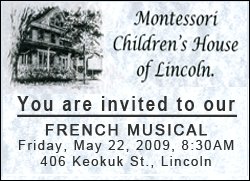| ||||||||||
| ||||||||||
Karadzic sits alone in the courtroom facing a battery of prosecutors, but the image can be deceptive. Peter Robinson, an attorney from Santa Rosa, California, who is helping organize Karadzic's defense, says seven law professors and lecturers and 19 law students from 10 countries are working for free, while the tribunal is paying for a further four lawyers and an investigator for Karadzic. "The Karadzic case is a high-profile case so it's prestigious to some degree to have worked on it," Robinson told The Associated Press. But Karadzic, who has no legal training, is determined to be in control. "He's very hands on," said Robinson. The attorney visits Karadzic regularly in his jail close to the Dutch North Sea coast and reviews legal challenges and preparations for trial. Karadzic's insistence on defending himself sparked fears he would delay proceedings, as did Milosevic, his political mentor, whose trial for atrocities in the former Yugoslavia dragged on more than four years until he died of a heart attack in 2006.
Alex Whiting, a former tribunal prosecutor who teaches law at Harvard, says Karadzic's strategy is very different from Milosevic's. Milosevic used his trial as a political platform, whereas "Karadzic very much is engaging the legal arguments," Whiting says. He is "challenging the prosecution theories and in this way is actually participating in the process in a way Milosevic never did." Robinson says that while Karadzic still believes he should not be tried, "he wants his day in court." Karadzic remains convinced that he had a deal with Holbrooke which should have exempted him from being tried, Robinson says. "But if he is then he wants to have his side of the story told."

[Associated
Press;
Copyright 2009 The Associated Press. All rights reserved. This material may not be published, broadcast, rewritten or redistributed.

News | Sports | Business | Rural Review | Teaching & Learning | Home and Family | Tourism | Obituaries
Community |
Perspectives
|
Law & Courts |
Leisure Time
|
Spiritual Life |
Health & Fitness |
Teen Scene
Calendar
|
Letters to the Editor